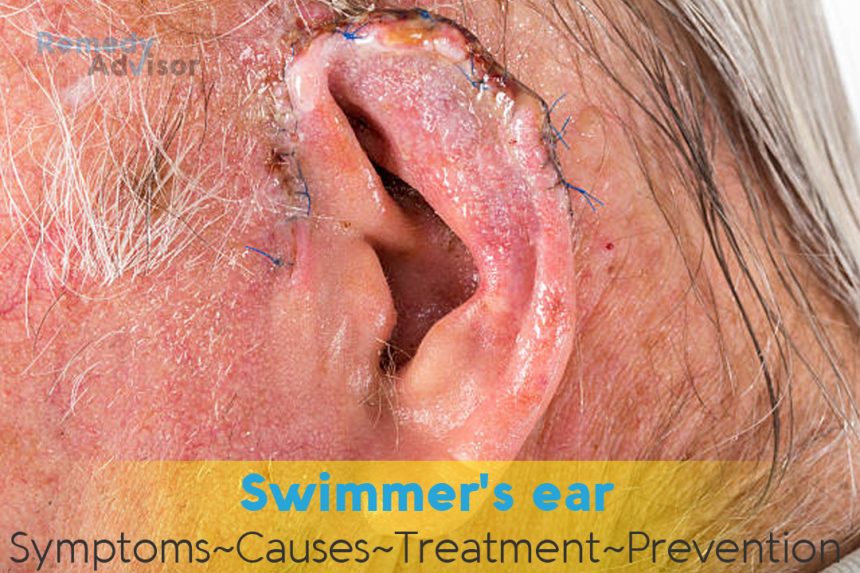What is it
Otitis external is the medical name of this painful itchy condition, which is a bacterial (sometimes fungal) infection that causes inflammation of the outer ear and canal. Just as you needn’t be an athlete to get athlete’s foot, you needn’t be a swimmer to get swimmer’s ear, also known as “jungle ear” though you don’t have to be in a jungle to get it either.
Symptoms
- Swelling, pain, and itching in the area of the outer ear.
- Soreness and tenderness in the triangular piece of cartilage in front of the ear opening.
- Discharge from the ear canal.
What causes it
The condition is brought on when water containing infectious agents gets trapped in the outer ear canal. Swimming is the most common cause of this problem, but some people may get water in their ears from showering or washing their hair. The longer the water remains in the ear, the more likely it is that any microorganisms will breed.
What if you do nothing
A mild case of swimmer’s ear often clears up without treatment. Severe, persistent, or recur- ring cases require medical attention.
Home remedies
You may be able to speed recovery from swimmer’s ear with the following measures.
Keep the infected ear dry
Wear a shower cap when you are washing your hair, and don’t go swimming.
Use antiseptic eardrops
You can buy these without a prescription at any drugstore. Or make them yourself: mix equal parts of white vinegar and rubbing alcohol. This solution restores the natural acid balance of the ear canal and helps dry it out; it also kills bacteria. If alcohol irritates your skin, use vinegar diluted with water.
Put one or two drops of this solution in each ear with a medicine dropper. Leave the drops in your ear for two or three minutes, then tilt your head and let them drain out. Repeat three times daily.
Don’t scratch
Resist the temptation to scratch inside the ear with an object; you risk rupturing your eardrum.
Prevention
Take these simple precautions.
Clear your ears
After swimming, shake your head to remove water trapped in your ears.
Keep the ears dry
Gently dry the external ear with a corner of a towel. Don’t insert cotton swabs or anything else into the canal to dry or clean your ears. This could cause injury. It could also remove protective earwax and encourage infection.
If you are prone to ear infection, use antiseptic eardrops
This is particularly helpful if you’ve been swimming in a lake.
Consider having your ears checked
People who are prone to itchy ears or ear infections may need to have a doctor check their ears and remove excess wax before swimming season starts. If you have ever had a perforated eardrum or have ever had ear surgery, get medical advice before using eardrops and before swimming.







